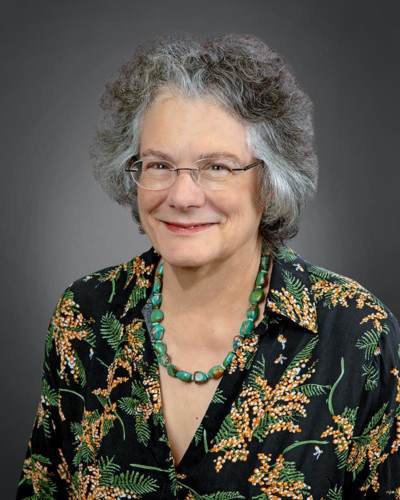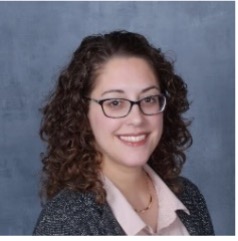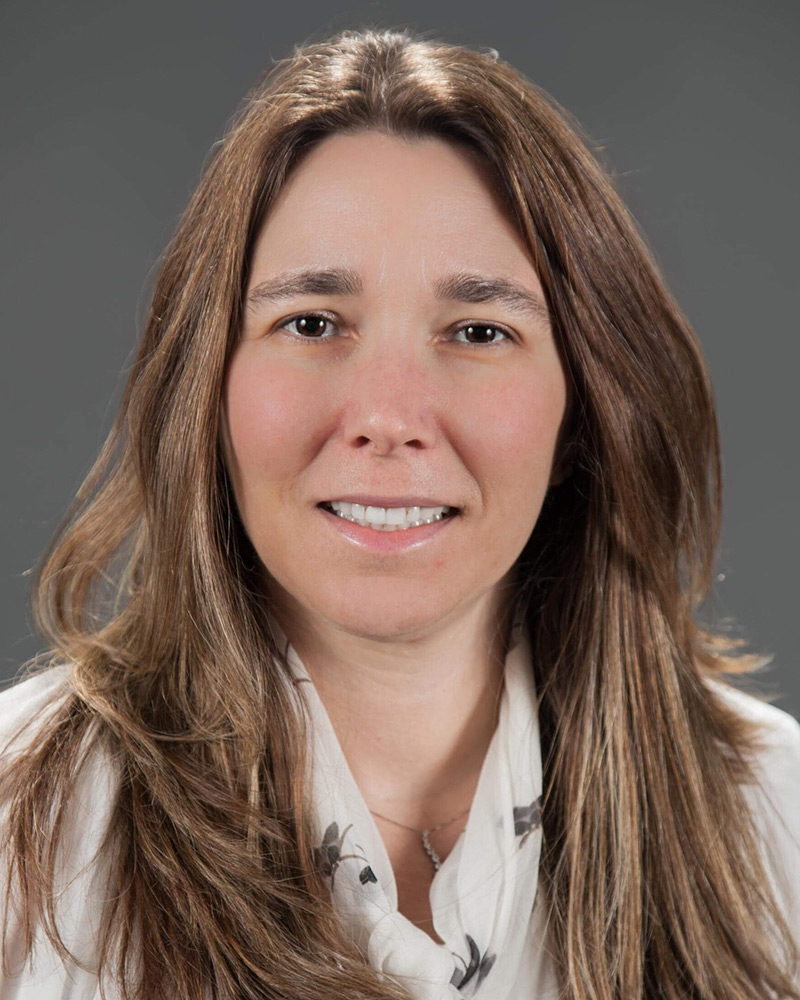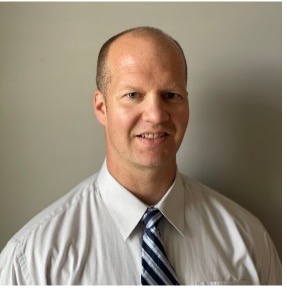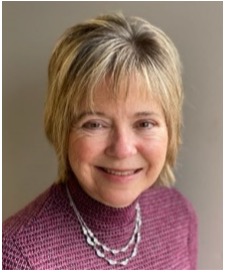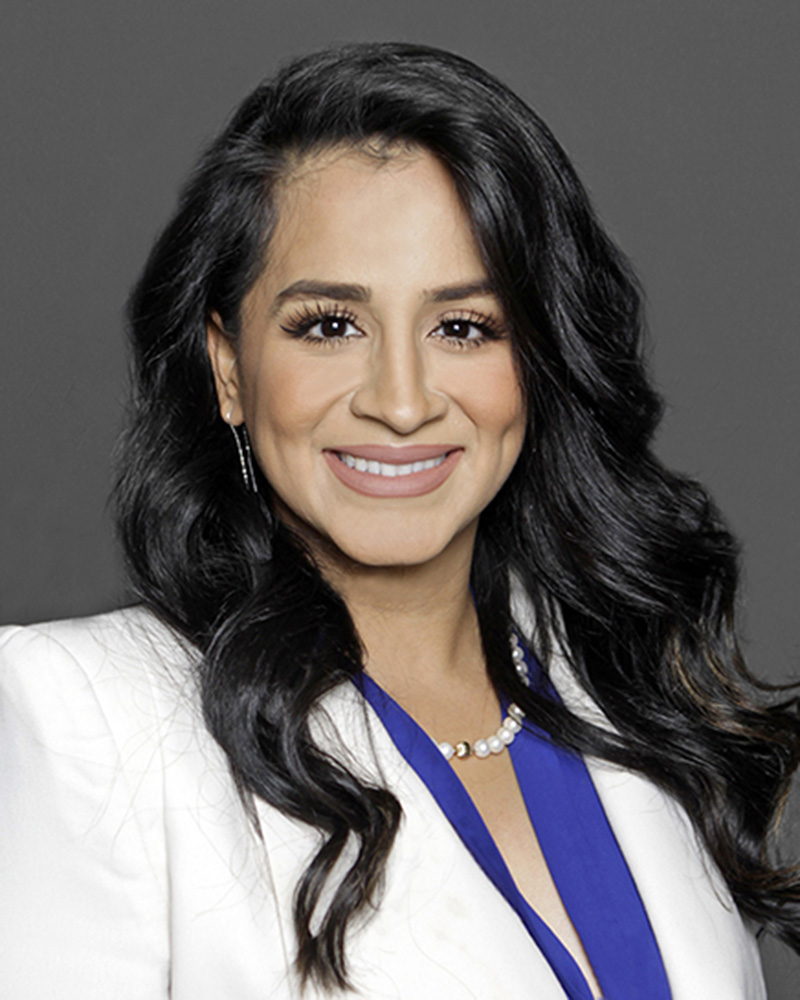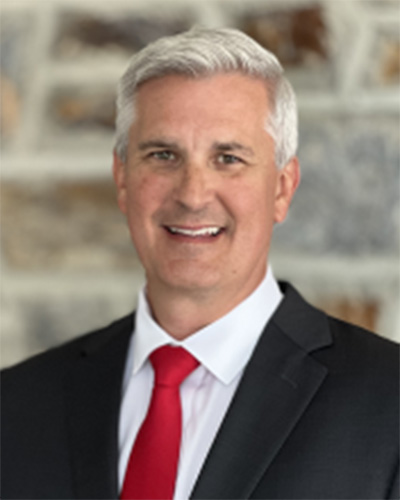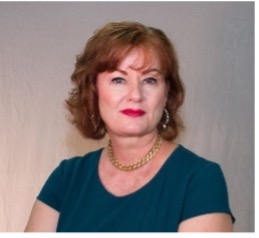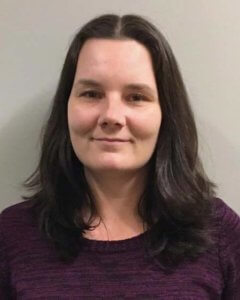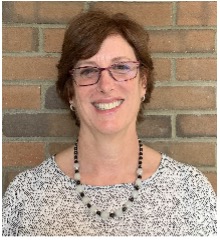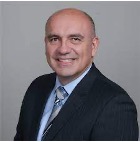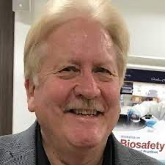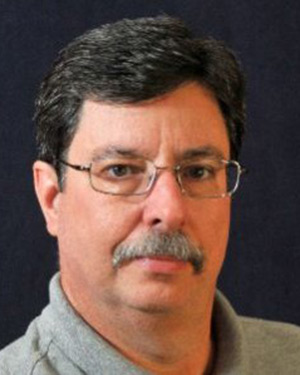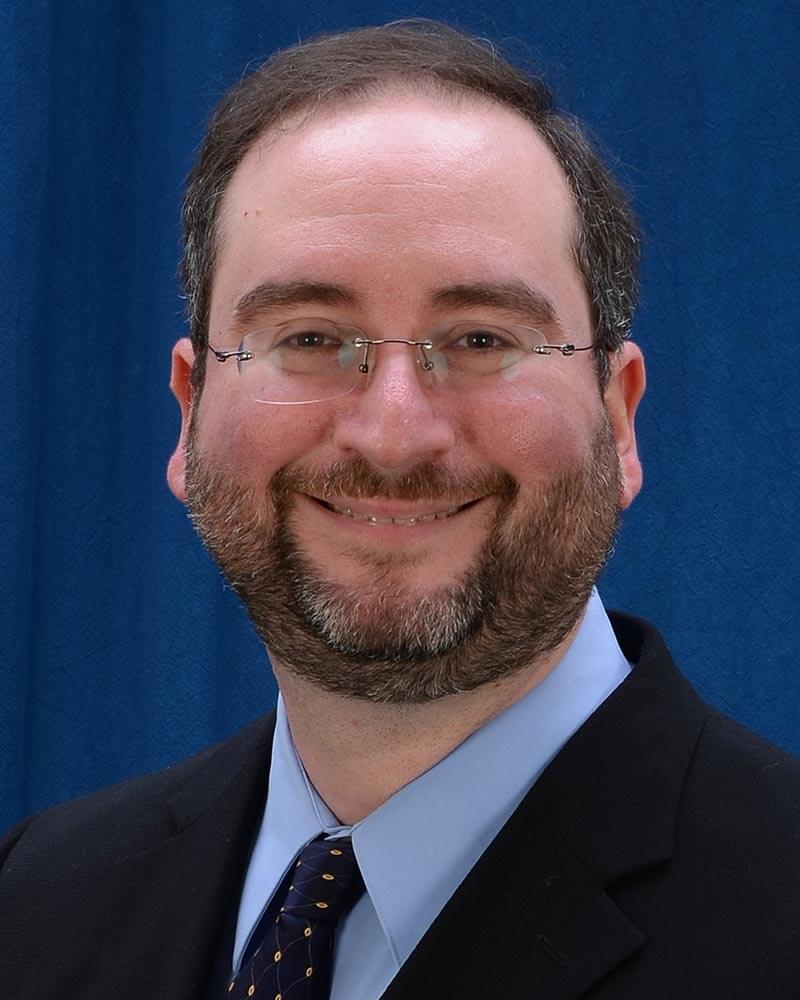Professional Development Courses
In-Person Courses
Raleigh Convention Center—Raleigh, North Carolina, October 24-26
(in-person courses are in Eastern Standard Time)
Basic Level Courses
For those new to the profession or would like training in a particular topic.
Friday, November 1, 2024, 8:00 AM – 5:00 PM
1. BSL-3 Operations and Management
This course will review the important aspects of BSL-3 Operations and Management from two points of view; “hardware” (i.e., facilities & equipment issues) and “software” (i.e., administrative controls). It will cover various aspects you need to consider in order to operate a BSL-3 facility, such as training, maintenance support, occupational health, waste management, maintenance, performance verification, and emergency response. The instructors will encourage interaction and the exchange of experiences among the attendees. Regulatory aspects from any specific country, or planning, design, or construction-related issues will not be covered.
Objectives:
- Describe the elements of BSL-3 Operations and Management (risk management, primary barriers, annual performance verification, emergency response, etc)
- Recognize institutional, management, and user responsibilities
- Summarize approaches to developing manuals, SOPs, and training
Suggested Background: Basic Risk Assessment and familiarity with BSL-3 Concepts
Target Audience: Safety Professionals, BSL-3 Managers, Containment Engineers, Lab and Scientific Directors
Audience Level: Basic
COURSE FACULTY
CONTACT HOURS
This course has been approved for 1.0 CM points toward RBP/CBSP recertification. ABSA International is approved as a provider of continuing education programs in the clinical laboratory sciences by the ASCLS P.A.C.E.® Program. This course is approved for 7.5 P.A.C.E.® contact hours.
Friday, November 1, 2024, 8:00 AM – 5:00 PM
4. Intersection Between Biosafety and Infection Control: An Introduction to Infection Control and Biosafety in Clinical Spaces
This course is meant for the biosafety professional who would like to learn more about application of biosafety principles in the clinical environment and partnering with Infection Control Departments in health systems. This is increasingly important as clinical trials using biological therapeutics, such as human gene transfer (HGT), require safety professionals to develop investigational product handling, preparation, and administration protocols that align with current clinical safety practices and environments. The goals of this course are to introduce different clinical environments, specific biosafety considerations for each space, hospital regulatory requirements that influence safety protocols, and how to collaborate with hospital infection control professionals to operationalize safety protocols in a way that’s meaningful to hospital staff.
Objectives:
- Describe inpatient, procedural and outpatient clinical environments and how this affects implementation of Biosafety Practices
- Restate the similarities and differences between biosafety levels, isolation precautions and standard precautions
- Summarize how NIH and BMBL guidelines relate to hospital regulatory and accreditation requirements when creating protocols for HGT clinical trials
Suggested Background: Principles and Practices of Biosafety® (PPB), Risk Assessment
Target Audience: All Safety Professionals, All Biosafety Professionals
Audience Level: Intermediate
COURSE FACULTY
CONTACT HOURS
This course has been approved for 1.0 CM points toward RBP/CBSP recertification. ABSA International is approved as a provider of continuing education programs in the clinical laboratory sciences by the ASCLS P.A.C.E.® Program. This course is approved for 7.5 P.A.C.E.® contact hours.
Saturday, November 2, 2024, 8:00 AM – 5:00 PM
5. Facilities Fundamentals for Biosafety Professionals
This course is aimed at strengthening biosafety professionals knowledge of how facility operations support overall biocontainment operations. The first portion of the course will familiarize attendees with the general concepts biosafety-related facility design and their roles in it, along with the fundamentals of HVAC system operation in the context of BSL-2 and BSL-3 facilities. Topics in this portion of the course include: the role of biosafety personnel in biocontainment facility design, renovation, and operations, understanding design drawings and related construction documents, what the relationship is of facility features to biosafety levels, and HVAC components and their function relative to biocontainment. The instructors will lead discussions of more detailed aspects of containment facilities and their operation, including: specific infrastructure, equipment, and systems related to operation of a biocontainment facility; autoclave function, waste management, associated facility infrastructure; room decontamination in relation to facility components; interactions between facilities and containment equipment; security, operations, and biosafety. Through a mixture of presentations from experts in the field and interactive exercises, attendees will reinforce their knowledge of facility system function and their roles in facility design, construction, and operation. The target audience for the course is biosafety professionals who come with backgrounds other than facilities, and it is open to both newcomers and seasoned veterans in the field.
Objectives:
- Restate the roles of biosafety professionals in facility design and operation
- Explain practical approaches for reviewing design documents.
- Describe the function of discrete facility infrastructure, equipment, and systems related to biocontainment facility operations
Suggested Background: BSL-3 Operations and Management, Fundamentals of Biosafety, Principles and Practices of Biosafety® (PPB)
Target Audience: All Biosafety Professionals, All Safety Professionals
Audience Level: Basic
COURSE FACULTY
CONTACT HOURS
This course has been approved for 1.0 CM points toward RBP/CBSP recertification. ABSA International is approved as a provider of continuing education programs in the clinical laboratory sciences by the ASCLS P.A.C.E.® Program. This course is approved for 7.5 P.A.C.E.® contact hours.
Saturday, November 2, 2024, 8:00 AM – 5:00 PM
8. Keeping it Going: Maintaining and Improving a Select Agent Program Over the Long Term
Keeping a select agent program going can be difficult, especially in the face of ever-changing regulatory requirements and limited resources. Established procedures may suddenly become unacceptable, interrupting research and frustrating laboratorians. Likewise, a single unexpected adverse event can put an entire program at risk. Being prepared to deal with such changes and events is critical to maintaining a robust program. Anticipating future challenges can be even more advantageous, elevating a program from good to great. A proactive approach can minimize the impact of new requirements and reduce duration and frequency of crises sparked by sudden, unexpected requirements or events. This course will explore strategies for maintaining and improving an existing program, including how to anticipate and respond to new requirements. The focus will be on U.S. select agent requirements, although a small section on comparable requirements in the international community will be included. Strategies will be based on the instructors’ experience with their program with additional input solicited from class attendees during open discussions. Topics will include select agent program history; effective oversight; efficiently meeting ongoing requirements; reporting, responding to, and analyzing incidents; suitability program case studies; inactivation requirements, including “failure” investigation; and inspection preparation and response. The course will consist of topical presentations followed by group discussions aimed at facilitating application of presented strategies to attendees’ individual programs and providing a platform to capitalize on attendees’ collective experience.
Objectives:
- Identify strategies for efficiently maintaining a select agent or equivalent program in good standing with ongoing requirements, including anticipating areas of emphasis in future inspections and/or future regulatory changes
- Indentify strategies for preparing for and responding to regulatory inspections, including strategies to efficiently implement necessary changes
- Review a series of suitability program case studies and identify strategies for dealing with potential suitability concerns
- Summarize inactivation requirements and identify successful strategies for compliance
Suggested Background: None
Target Audience: All Safety Professionals, Select Agent Program Safety Professionals
Audience Level: Intermediate
COURSE FACULTY
CONTACT HOURS
This course has been approved for 1.0 CM points toward RBP/CBSP recertification. ABSA International is approved as a provider of continuing education programs in the clinical laboratory sciences by the ASCLS P.A.C.E.® Program. This course is approved for 7.5 P.A.C.E.® contact hours.
Intermediate Level Courses
For those with basic knowledge or would like to learn more.
Friday, November 1, 2024, 8:00 AM – 5:00 PM
2. IATA Infectious Substance Shipping Certification
This course is appropriate for those who have some experience with infectious substance handling or shipping but may not have been certified within the past 3 years and those with little to no previous training. The course utilizes several facilitated learning activities. There will be group discussions and interactive exercises focused on the essential areas of infectious substance shipping. New IATA requirements for competency assessment will be administered short interactive assignments, and an online exam. Participants will mark, label, package, and complete documentation for infectious substance shipments (Category A, Category B, and Exempt Patient Specimens), and review applicable regulations with a focus on IATA. Additional U.S. DOT differences will also be addressed. This course is appropriate for those responsible for packaging, marking, and labeling shipments of all categories of infectious substances, dry ice, and liquid nitrogen. Participants have both an online exam (score at least 80%) and practical exercises to complete to demonstrate competency. Successful completion of the course will qualify attendees for IATA/DOT certification.
Objectives:
- Review and restate shipping regulations for both air and ground with a particular focus on 49 CFR US DOT and IATA air regulations
- Conduct a risk assessment and be able to properly classify and identify infectious substances for transport purposes
- Package, mark, label, and prepare documentation for shipments of infectious substances to meet regulatory requirements for air and ground shipments
Suggested Background: None
Target Audience: All Safety Professionals, New Biosafety Professionals, Laboratory Workers
Audience Level: Basic
COURSE FACULTY
CONTACT HOURS
This course has been approved for 1.0 CM points toward RBP/CBSP recertification. ABSA International is approved as a provider of continuing education programs in the clinical laboratory sciences by the ASCLS P.A.C.E.® Program. This course is approved for 7.5 P.A.C.E.® contact hours.
Friday, November 1, 2024, 8:00 AM – 5:00 PM
3. Basic Risk Assessment
Rapid scientific and technological advances continue to challenge the biosafety community in determining and establishing the practices and containment necessary to avoid exposure to hazardous biological agents and materials found in the laboratory. This introductory course will provide an opportunity to incorporate the basic knowledge and skills necessary to perform risk assessments for working safely with pathogens (human and animal) and rDNA (genetically modified organisms or viral vectors). Using case studies, attendees will work together to conduct risk assessments by determining the hazards involved; the appropriate questions to ask to address the potential risks associated with the intended activities and make recommendations on appropriate containment and practices required to work safely. Each group will present their conclusions from the activity.
Objectives:
- Identify and list determinants for assessing risk (host, environment, agent)
- Complete the steps of a risk assessment and determine steps to manage risk (mitigation)
- Identify resources and references for risk assessment/management
Suggested Background: None
Target Audience: New Biosafety Professionals, Laboratory Workers
Audience Level: Basic
COURSE FACULTY
CONTACT HOURS
This course has been approved for 1.0 CM points toward RBP/CBSP recertification. ABSA International is approved as a provider of continuing education programs in the clinical laboratory sciences by the ASCLS P.A.C.E.® Program. This course is approved for 7.5 P.A.C.E.® contact hours.
Saturday, November 2, 2024, 8:00 AM – 12:00 PM
10. Introduction to Biosafety
This course is designed for individuals new to the profession, EHS professionals needing an understanding of biosafety, and for those interested in a refresher on the fundamental principles and practices of biosafety. Participants will gain a solid foundation in biosafety concepts, enabling them to understand and mitigate risks associated with biological materials in various laboratory settings. Class content and discussion include regulatory standards and guidelines, hazard identification, risk assessment and mitigation. Mitigations discussed will include biosafety levels and facility design, proper choice and use of personal protective equipment, waste management, decontamination and sterilization, and more.
Objectives:
- Identify the breadth of duties that may be central or peripheral to a biosafety professional
- Restate the major sources of regulatory and guidance materials available to them
- Describe the roles others within the institution play in supporting biosafety
Suggested Background: None
Target Audience: New Biosafety Professionals, Laboratory Workers
Audience Level: Basic
COURSE FACULTY
CONTACT HOURS
This course has been approved for 0.5 CM points toward RBP/CBSP recertification. ABSA International is approved as a provider of continuing education programs in the clinical laboratory sciences by the ASCLS P.A.C.E.® Program. This course is approved for 3.5 P.A.C.E.® contact hours.
Saturday, November 2, 2024, 8:00 AM – 12:00 PM
11. Integrating AI into Synthetic Biology: A Biosecurity Risk Assessment Course
This intensive half-day course is designed for biorisk management professionals who are at the forefront of integrating Artificial Intelligence (AI) into synthetic biology. With AI rapidly transforming scientific research and applications, its adoption presents unique biosecurity challenges. This course provides an in-depth look into the specialized biosecurity risk assessment process tailored for AI applications in synthetic biology, combining theoretical foundations with practical, hands-on exercises and interactive case studies. Some of the topics to be covered include: an overview of AI technologies and their applications in synthetic biology; fundamentals of biosecurity risk assessment for AI; discuss the concepts of vulnerability, threat, risk, consequence, and mitigation; develop a dynamic risk management plan and strategies for continuous monitoring and updating of risk assessments to address the evolving nature of AI technologies and synthetic biology applications. Attendees will also discuss the challenges of maintaining an adaptable and proactive risk management stance in a rapidly advancing scientific field.
Objectives:
- Explain at a basic level the AI integration in synthetic biology research
- Identify associated biosecurity risks
- Apply a structured approach to assess these risks using newly developed tools and methodologies
Suggested Background: Fundamentals of Biosafety
Target Audience: All Safety Professionals, All Biosafety Professionals
Audience Level: Basic
COURSE FACULTY
CONTACT HOURS
This course has been approved for 0.5 CM points toward RBP/CBSP recertification. ABSA International is approved as a provider of continuing education programs in the clinical laboratory sciences by the ASCLS P.A.C.E.® Program. This course is approved for 3.5 P.A.C.E.® contact hours.
Saturday, November 2, 2024, 1:00 PM – 5:00 PM
13. Field Research Safety for Biosafety Professionals
Biosafety professionals are often tasked with reviewing field research protocols, but many biosafety professionals have never received training in field research safety. In this course, attendees will review hazards inherent to fieldwork, lessons learned from past incidents, and assess risk for a variety of field projects. The attendees will discuss safe work practices in the field and exposure control approaches for zoonotic, vector-borne, soil-borne, and water-borne diseases. The course will also assist attendees to identify potential gaps in institutional and regulatory oversight and steps to improve a culture of safety and preparedness in the field.
Objectives:
- Review common environmental hazards; zoonotic, vector-borne, soil-borne, and water-borne diseases relevant to outdoor or remote fieldwork
- Evaluate risk tolerance as it relates to protocol and research review
- Assess risk for a variety of field projects including wildlife research, community health studies, excavating soil, plant surveys, etc.
- Identify reasonable controls and expectations
- Describe the compliance drivers, model field safety programs, written field safety plan templates; as well as best practices, technical references and potential actions to improve culture of safety and preparedness in the field
Suggested Background: None
Target Audience: All Biosafety Professionals
Audience Level: Intermediate
COURSE FACULTY
CONTACT HOURS
This course has been approved for 0.5 CM points toward RBP/CBSP recertification. ABSA International is approved as a provider of continuing education programs in the clinical laboratory sciences by the ASCLS P.A.C.E.® Program. This course is approved for 3.5 P.A.C.E.® contact hours.
Sunday, November 3, 2024, 8:00 AM – 5:00 PM
14. Medical Emergencies in the Laboratory – Are you prepared?
Biological Sciences form the foundation of medical research and healthcare including: biochemistry, molecular, cellular, developmental biology, microbiology, plant biology/pathology and public health. Biosafety professionals regularly train staff to handle spills, exposure to chemicals, weather related events, power outages, and biosecurity, but what about medical emergencies? Your organization may have emergency response procedures, but are the individuals in the lab, field, or even visitors prepared to handle first aid in situations involving biologicals? Personnel should be able to recognize and react to medical emergencies they may encounter at your institution involving biologicals. Early recognition of potential medical emergencies can reduce long-term or deadly consequences and legal challenges. Medical emergencies may involve only one individual or it can be a large-scale emergency. Prepare your personnel to respond appropriately in order to avoid worsening the situation. Discover ways to improve communication and cooperation with internal emergency response teams and local emergency responders (911 operators, fire, EMS, law enforcement) when biologicals are involved. Consider the impact when First Responders arrive on scene and see a BSL-2 or BSL-3 sign. If an ambulance is required, is the patient ready to transport? Although you cannot predict every emergency, preparing your personnel to think through a response by preplanning for an event and the steps to recovery is necessary to simplify an emergency response. This class will offer guidance and assistance in preparing for emergencies.
Objectives:
- Establish relationships with local emergency response
- Summarize the right response in a medical emergency
- Communicate the decontamination procedures to employees and emergency responders
Suggested Background: Basic first aid
Target Audience: All Safety Professionals, New Biosafety Professionals, Laboratory Workers
Audience Level: Basic
COURSE FACULTY
CONTACT HOURS
This course has been approved for 1.0 CM points toward RBP/CBSP recertification. ABSA International is approved as a provider of continuing education programs in the clinical laboratory sciences by the ASCLS P.A.C.E.® Program. This course is approved for 7.5 P.A.C.E.® contact hours.
Sunday, November 3, 2024, 8:00 AM – 5:00 PM
15. Pharmaceutical Biosafety Officer Training
The course is intended for Pharma Biosafety Officers (BSOs), BSOs with interest in the biopharmaceutical industry, and can be a complimentary course to Principles and Practices of Biosafety® (PPB) offered by ABSA International. The instructors will review the Biosafety Regulatory Frameworks including key regulations in the U.S. and non-US regulations and key differences between regions. This includes an Introduction to the Biorisk Management Framework and the new ISO Standard. Key topics on Applied Biosafety, including examples of new technologies in industry (e.g., CRISPR, viral vector gene therapy, others), will be discussed as well as a review of the hazard classification of human cell lines, animal blood and tissue samples, a discussion on examples of LAIs (e.g., N. meningitis, rabies), improper inactivation scenarios, and environmental release of biological agents (including a biological agent release scenario—how to handle). Good Manufacturing Practices (GMP) will be discussed including what it is, why it is important, and how to harmonize GMP and biosafety requirements. This interactive course will feature a variety of group exercises where attendees will review engineering design requirements, P&IDs, identify issues, propose recommendations for what is acceptable vs. not, HVAC design, placement and type of equipment, room pressurization, workflow, decontamination (e.g., autoclave, HEPA, kill tanks), process equipment containment. A risk assessment course will be featured as part of the group exercises where attendees will discuss how to complete a risk assessment with certain perameters, then each groups risk assessment will run through an approval process (e.g., IBC) with other groups acting as the IBC and collectively review each other’s risk assessment. The course will conclude with roundtable discussions including the group scenarious, discussions, and further Q&A.
Objectives:
- Identify the global biorisk management regulatory frameworks as applicable to pharmaceutical companies
- Restate how to harmonize GMP and biosafety, and how to integrate biosafety principles into engineering design projects (including lab and large-scale)
- Summarize how to conduct a biorisk assessment and expectations for biosafety committee approval
Suggested Background: Fundamentals of Biosafety, Micro/Molecular Biology 101, Principles and Practices of Biosafety® (PPB), Risk Assessment
Target Audience: All Biosafety Professionals
Audience Level: Intermediate
COURSE FACULTY
CONTACT HOURS
This course has been approved for 1.0 CM points toward RBP/CBSP recertification. ABSA International is approved as a provider of continuing education programs in the clinical laboratory sciences by the ASCLS P.A.C.E.® Program. This course is approved for 7.5 P.A.C.E.® contact hours.
Advanced Level Courses
For those with experience or looking for a challenging course.
Saturday, November 2, 2024, 8:00 AM – 5:00 PM
6. Articulating the Value of Your Biosafety Program
A recurrent challenge confronting biosafety professionals is the ability to garner necessary program resources to achieve desired goals and objectives. The basis for this difficulty is that, on a good day in the world of biosafety, “nothing happens”. The underlying challenge is that upper management may not fully appreciate or understand all the effort and resources that went into making “nothing happen”. Biosafety professionals in particular experience difficulty in this regard because many in the profession have received intensive training in the biological sciences, but little or no training in the area of program management. This course focuses on some key management approaches and techniques that can be used within biosafety programs to help improve stakeholder understanding, which in turn can result in the provision of necessary programmatic resources. Numerous real-world examples of successful applications of the techniques presented will be displayed for review and discussion. Ample time will be provided throughout the course for attendee interaction and inquiries.
Objectives:
- Identify various biosafety programmatic measures and metrics that should be captured and communicated
- Paraphrase the techniques that can be used for displaying biosafety data in ways that others can readily understand and appreciate it
- Describe how biosafety programs can assist with other basic safety program needs to help avoid the notion of program duplication of efforts and to improve safety and client satisfaction levels
Suggested Background: None
Target Audience: All Safety Professionals, All Biosafety Professionals
Audience Level: Basic
COURSE FACULTY
CONTACT HOURS
This course has been approved for 1.0 CM points toward RBP/CBSP recertification. ABSA International is approved as a provider of continuing education programs in the clinical laboratory sciences by the ASCLS P.A.C.E.® Program. This course is approved for 7.5 P.A.C.E.® contact hours.
Saturday, November 2, 2024, 8:00 AM – 5:00 PM
7. Engineering for the Biosafety Professional Part I
Biosafety professionals (BSOs) need to be involved and knowledgeable in the operation, maintenance, and certification of their biocontainment facilities and building systems. The BSO is called upon to participate in the planning, design, and validation of a new biocontainment laboratory or renovation of an existing facility. This course provides basic engineering principles that are useful in the planning, design, and operation of a BSL-3 facility and is intended to fill the gap by providing basic knowledge for understanding the processes used in the planning, design, construction, maintenance, and operation of a BSL-3 laboratory. For the BSO to participate in these activities, they need to understand engineering fundamentals, develop skills to ask questions in engineering terms, and possess the confidence to question the answers. This is the first course of a two-part series offered in alternating years. Part I of the course will provide information relevant to BSL-3 facilities for the determination of air change rates, define HVAC containment boundaries, interpret design drawings, understand HEPA filtration, provide an introduction to determining room heat loads and ventilation rates, provide concepts in directional airflow and room pressure differentials as well as an introduction to HVAC components. There will be presentations on planning, design (with a checklist), construction oversight, commissioning, certification/validation/ANSI Z9.14 Standard, maintenance, and operations. Upon course conclusion, the attendees should have the knowledge to better understand engineering issues in the planning, design, construction, commissioning, certification/validation, and post-occupancy of biocontainment facilities, be able to formulate informed questions, be able to interact with maintenance personnel and integrate facility operations with the biosafety program.
Objectives:
- Discuss engineering principles and the design and construction process of a BSL-3 laboratory
- Recall the phases and the strategies of a BSL-3 laboratory design
- Identify potential problems before construction begins
- Describe the elements of a quality assurance program
Suggested Background: None
Target Audience: All Biosafety Professionals, Operations and Maintenance Staff
Audience Level: Intermediate
COURSE FACULTY
CONTACT HOURS
This course has been approved for 1.0 CM points toward RBP/CBSP recertification. ABSA International is approved as a provider of continuing education programs in the clinical laboratory sciences by the ASCLS P.A.C.E.® Program. This course is approved for 7.5 P.A.C.E.® contact hours.
Saturday, November 2, 2024, 1:00 pm – 5:00 pm
12. Respiratory Protection for Biosafety Professionals
This course will provide an overview of respiratory protection personal protection equipment (PPE), including selection considerations for biological and chemical hazards. A deeper dive into key hazards relevant to biosafety professionals and their respiratory protection considerations will follow. While mostly based on U.S. OSHA Respiratory Protection Program requirements, much of theinformation presented will be applicable internationally.
Objectives:
- Describe the basic process for hazard and exposure assessment necessary for selecting appropriate respiratory protection equipment
- Identify the types and styles of respiratory protection equipment, in addition to U.S. OSHA requirements for their use
- Summarize the process of respirator selection and product implementation in their workplace for key hazards
Suggested Background: None
Target Audience: All Biosafety Professionals, All Safety Professionals
Audience Level: Intermediate
COURSE FACULTY
CONTACT HOURS
This course has been approved for 0.5 CM points toward RBP/CBSP recertification. ABSA International is approved as a provider of continuing education programs in the clinical laboratory sciences by the ASCLS P.A.C.E.® Program. This course is approved for 3.5 P.A.C.E.® contact hours.
Sunday, November 3, 2024, 8:00 AM – 5:00 PM
16. Commissioning and Recommissioning for BSL-3 Containment Laboratory
By understanding the commissioning and recommissioning processes, it can assist the biosafety professional in start-up or maintaining their laboratory operations to perform the program. Laboratory commissioning, identified in containment guidance documents, is a quality assurance process for the effective functioning of biocontainment laboratories. The biosafety officer and other decision makers benefit by having a basic understanding of the commissioning and recommissioning processes and resulting documentation. This course will review the phases of the new facility commissioning process and similar process for recommissioning. This knowledge base allows the biosafety professional to recognize how commissioning assists in providing and documenting a properly operating facility. A review of the secondary containment features of the BSL-3 laboratory will be disucssed and note specific issues typically observed. There will be a focus on two issues, the reversal of directional airflow and sealing of surfaces and penetrations. Participants will consider methods to identify the issues and present some specific mitigations of these issues; can actively participate in the commissioning/recommissioning processes and understand the methodology, the tools, results, and their interpretation; will know their facility operates correctly, its limitations, and the risk when it does not. This knowledge allows the biosafety professional to check or back check the containment spaces’ performance and use this knowledge to perform daily inspections for maintenance or replacement and control risk to the lowest level. The biosafety professional can identify required features in a new laboratory or review an existing lab with a better understanding of typical issues to assure safe reliable operations.
Objectives:
- Develop an understanding of the overall commissioning and recommissioning processes for containment labs
- Articulate the engineering controls required and effectively participate in the processes
- Identify typical issues observed during commissioning/recommissioning of the laboratory secondary containment barriers and the options for practical solutions to those issues
- Demonstrate a knowledge base and provide documentation to better perform daily inspections to reduce risk for safe and reliable laboratory operations
Suggested Background: None
Target Audience: All Safety Professionals, Laboratory Workers, Operations and Maintenance Personnel
Audience Level: Intermediate
COURSE FACULTY
CONTACT HOURS
This course has been approved for 1.0 CM points toward RBP/CBSP recertification. ABSA International is approved as a provider of continuing education programs in the clinical laboratory sciences by the ASCLS P.A.C.E.® Program. This course is approved for 7.5 P.A.C.E.® contact hours.
VIRTUAL Offerings
(all virtual courses are in Central Time Zone)
Registration must be completed 1 business day prior to the start of the training.
Registrations received after will receive access to the recording only.
Tuesday, October 15 and Thursday, October 17, 2024, 10:00 AM – 2:30 PM CDT
1V. Plant and Arthropod Biosafety Basics
Plant research is the backbone of both genetically modified, disease resistance, and breeding of both academic and biotechnology research. Attendees will discover what is needed to design a greenhouse and lab that will contain genetically modified material and insects as well as an overview of Arthropod Containment Levels. This course will feature a diverse array of advanced scenarios and interactive exercises showcasing the spectrum of biological, genetically modified, arthropod, and other risks and hazards commonly encountered in greenhouses, fields, and laboratories supporting plant research. Attendees will be guided through strategies for identifying potential hazards, assessing the magnitude and extent of induced risks and cost, and developing effective control measures to protect the safety of workers, plants, and the environment. The course employs “real world” examples to improve understanding of greenhouse and field operations.
Objectives:
- Review risk assessment techniques as they apply to research involving genetically modified (GM) plants
- Identify and apply effective hazard and exposure control strategies into GM, arthropod lab, greenhouse design, and research facility management procedures
- Summarize strategies for safety professionals to collaborate with plant program personnel in addressing common research safety and environmental issues
Suggested Background: None
Target Audience: All Safety Professionals, All Biosafety Professionals
Audience Level: Basic
Course Length: 8 hours (two 4-hour live sessions with a 30-minute break each session)
COURSE FACULTY
CONTACT HOURS
This course has been approved for 1 CM points toward RBP/CBSP recertification. ABSA International is approved as a provider of continuing education programs in the clinical laboratory sciences by the ASCLS P.A.C.E.® Program. This course is approved for 8.50 P.A.C.E.® contact hours.
Monday – Friday, October 21-25, 2024, 10:00 AM – 11:35 AM CDT
Registration is closed for this webinar. You may purchase the recording.
2V. Infectious Substance Shipping Program Management
This course is tailored for individuals responsible for establishing and overseeing infectious substance shipping programs within their facilities. This webinar series aims to assist institutions in developing robust shipping programs tailored to their needs. Course elements include: training; written policies; written descriptions of program plans; transport and shipping specific SOPs; safety and security plans; emergency response plans; logistics and supplies; carrier selection and support; MOUs and authorizations; access control and personnel assurance. The instructor will provide a detailed and comprehensive shipping program assessment and implementation guidance document. Attendees will receive an introduction to this document and step-by-step guidance on its completion. By completing the assessment document, attendees will conduct a thorough review to identify areas for improving existing shipping programs. This interactive, instructor led, web-based training will invite attendees to share examples of how these elements are addressed at their own institution.
Objectives:
- Evaluate external and internal requirements or conditions that impact shipping policies and program components at a facility, emphasizing the relevance of international regulations (ICAO TI), international standards (IATA DGR), and other guidance (CDC, WHO, CWA) for developing a robust shipping program
- Recognize the components of a shipping program and utilize provided tools and templates to assess current shipping program elements, identifying opportunities for improvement
- Compare and contrast various approaches to setting up a shipping program (centralized, decentralized, hybrid), and gain an understanding of the advantages and disadvantages associated with each
Suggested Background: IATA Infectious Substance Shipping Certification
Target Audience: Experienced Biosafety Professionals, Infectious Substance Shipping Managers & Trainers
Audience Level: Advanced
Course Length: 8 hours (five 95-minute live sessions)
Within 10 business days of purchasing the recording, you will be added to the course on the ABSA International Training Site. If you have already taken ABSA courses, then you will receive an enrollment notification. If you are a new user, you will receive an invitation to create your account on the ABSA International Training Site. Once the account is created, you will see the course on your course dashboard. You will have 60 days to complete the course.
COURSE FACULTY
COURSE FEES
ABSA Members: $720 USD
Nonmembers: $820 USD
CONTACT HOURS
This course has been approved for 1 CM points toward RBP/CBSP recertification. ABSA International is approved as a provider of continuing education programs in the clinical laboratory sciences by the ASCLS P.A.C.E.® Program. This course is approved for 8.50 P.A.C.E.® contact hours. The links to the various invitations for the course will be unique to the user and cannot be shared. The links to the various invitations for the course will be unique to the user and cannot be shared. The links are for single, individual use only.
Friday, September 13, 2024, 11:00 AM – 3:30 PM CDT
3V. Introduction to Biosafety in the Clinical Setting
The clinical setting poses a different environment than research laboratories. This course provides foundations for applying biosafety concepts in the clinical setting. Course topics include common issues and lessons learned pertaining to clinical facilities including pharmacies, laboratories, clinics, infusion areas, ORs, and waste disposal facilities; PPE, disinfection, risk assessments, and safety practices in the clinical setting; speaking biosafety to doctors, nursing staff, pharmacy staff, infection prevention and control, diagnostic microbiology lab personnel, and hospital EHS staff; applying NIH Guidelines and the BMBL to the clinical setting; gaps in oversight of research safety for clinical trials, and risk assessments for unconventional or highly specialized delivery mechanisms for biologics. The course will conclude with a focus on clinical trials including the role of an IRB and how it can overlap with an IBC; the process for investigational products to obtain FDA approval to be deemed as safe and effective therapeutics; and the evolving regulatory environment in the U.S. for biologics such as vaccines, regenerative medicines, and gene therapy. The course is designed to be highly interactive with discussions, surveys, and group exercises.
Objectives:
- Apply biosafety principles in the clinical setting
- Perform risk assessments and identify gaps in occupational safety in the clinical setting
- Discuss the regulatory oversight structure for clinical trials and the developmental process for investigational products
Suggested Background: None
Target Audience: All Safety Professionals, New Biosafety Professionals, Laboratory Workers, Research Administrators, Clinical Professionals
Audience Level: Basic
Course Length: 4 hours (one 4-hour live session with a 30-minute break)
COURSE FACULTY
CONTACT HOURS
This course has been approved for 0.5 CM points toward RBP/CBSP recertification. ABSA International is approved as a provider of continuing education programs in the clinical laboratory sciences by the ASCLS P.A.C.E.® Program. This course is approved for 4.50 P.A.C.E.® contact hours.
Tuesday, September 17, 2024, 11:00 AM – 3:30 PM CDT
4V. Bio-Hazardous Drugs
The anticipated implementation of United States Pharmacopeia (USP) 800 in healthcare created a new resolve to conduct thorough risk assessments of healthcare formularies. The role of this assessment was to identify the hazards posed by these drugs, to evaluate the exposure risks associated with these hazards, and to determine the potential health consequences of both acute and chronic exposure. Most healthcare facilities that conducted these risk assessments utilized a risk matrix that incorporated criteria commonly used in toxicology to evaluate exposure to chemicals. As the pharmaceutical industry quickly turns to novel biologics to treat and/or correct disease, a risk assessment of the biological hazards associated with these novel biologics is warranted. This course will provide information on these biologics; explore the known and anticipated biological properties of each; discuss the potential these biologics have to cause infections, to be shed, to contaminate the environment, and to be transmitted to others; and will cover the pertinent controls needed to contain these biologics, to prevent inadvertent exposure to these materials, to remove them from the environment, and to ensure staff and patients are appropriately educated.
Objectives:
- Define a hazardous drug and a hazardous biologic
- Recognize the hazards, exposure risks, and health consequences posed by these hazardous drugs and hazardous biologics
- Describe pertinent healthcare and pharmacy standards concerning hazardous drugs and hazardous biologics
Suggested Background: Risk Assessment, Virology/Viral Vectors
Target Audience: All Safety Professionals, All Biosafety Professionals
Audience Level: Basic
Course Length: 4 hours (one 4-hour live session with a 30-minute break)
COURSE FACULTY
CONTACT HOURS
This course has been approved for 0.5 CM points toward RBP/CBSP recertification. ABSA International is approved as a provider of continuing education programs in the clinical laboratory sciences by the ASCLS P.A.C.E.® Program. This course is approved for 4.50 P.A.C.E.® contact hours.
Friday, September 6 and Monday, September 9, 2024, 10:00 AM – 2:30 PM CDT
5V. Animal Research for Biosafety Professionals – An Introduction
Animal Research has contributed to major scientific advances in biomedical, veterinary, and environmental sciences and in public health. However, these efforts often pose significant risks to the health and safety of research and facility staff due to the wide range of species, complex experimental procedures and equipment, and facility hazards that are involved. Balancing optimal worker safety and animal welfare with research objectives yields the best results but requires a solid understanding of how animal programs are managed and an ability to identify and mitigate inherent risks. This course provides a thorough introduction to routine hazards commonly encountered in animal programs that utilize rodents, small animals, nonhuman primates, aquatics, and agricultural species, with a primary focus on identifying and managing biological, chemical, radiological, and physical hazards. Topics include assessment and management of animal program hazards; universal regulations, guidelines, and quality standards that apply to animal research; duties and responsibilities of key program personnel; local oversight systems; best practices that enhance the quality of animal care; and strategies for biosafety professionals to develop and maintain effective partnerships with program staff and institutional animal care and use committee members. Opportunities will be provided to apply new knowledge and skills through interactive group activities and problem-solving sessions. The instructors are experienced laboratory animal veterinarians who are actively involved in the management, oversight, and evaluation of animal care and use programs. The primary target audience for this course are biosafety and general safety professionals with limited experience in the animal research environment.
Objectives:
- Review basic hazard identification and risk assessment techniques relevant to research involving live animals
- Develop an understanding of governing regulations and guidelines that pertain to the care and use of research animals
- Recognize the difference between “regulatory requirements” and “best practices” that relate to performance-based standards
- Identify successful strategies for working effectively with animal program personnel on common research safety issues
Suggested Background: None
Target Audience: New Biosafety Professionals, All Safety Professionals, Laboratory Workers
Audience Level: Basic
Course Length: 8 hours (two 4-hour live sessions with a 30-minute break each session)
COURSE FACULTY
CONTACT HOURS
This course has been approved for 1 CM points toward RBP/CBSP recertification. ABSA International is approved as a provider of continuing education programs in the clinical laboratory sciences by the ASCLS P.A.C.E.® Program. This course is approved for 8.50 P.A.C.E.® contact hours.


